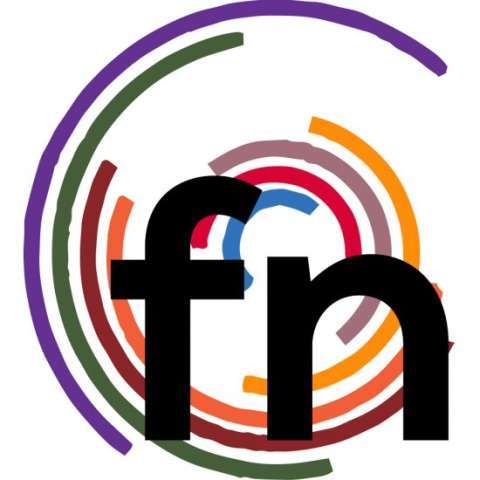You have your vision and you're eager to make that first move in the world of PR. But before I jump into what you're here for, the nine critical things you should now about PR, we need to be sure that your ready to begin such a relationship with the media. It's not a matter of feeling ready, it's a matter of being ready.
Before you even begin thinking about PR, you need to have what I refer to as your social media house in order. This is your foundation. It is vital for your PR success that you have a presence sufficiently fleshed out on the internet from your website to your blog to your Twitter page. You won't get the results you want from your PR campaign if you don't have a strong internet presence.
With the unbelievable number of publicists flooding the inboxes of the media, you can count on the fact that these editors and writers will be checking each submission's social media presence as a means to weed out who not to cover. As always, you want to have the edge. Having a presence doesn't mean having more Facebook likes than everyone else. It means having consistent activity online and engaging with your fans.
Once your social media house is built and stable you can begin thinking about amassing the publicity you're looking for.
Let's get started!
1. What Is Publicity Exactly?
Before we delve into specifics, let's make sure we have the basics covered. Her are some definitions of what publicity is exactly, according to the Merriam-Webster Dictionary:
Publicity - "An act or device designed to attract public interest; specifically: information with news value issued as a means of gaining public attention or support. Also: The dissemination of information or promotional material."
I couldn't have said it better myself. Publicity is precisely all of these things.
A publicist is hired as a member of your team to represent you to the media. Media is traditionally defined as editors and writers of newspapers, magazines, and television. More and more publicists are covering Internet PR, like my company. However, not all traditional publicists do this, so make sure to ask before you hire.
A publicist's job is to liaise with the press. In other words, a publicist establishes working relationships between you and those in the media. You should not expect them to get you any type of specific marketing deal. Publicists don't make sales. A savvy and well-connected publicist may be able to hook you up with above-mentioned, but it is not in his or her job description.
2. You Are the Visionary Here
Remember, as the entrepreneur, you are the buyer, and you are shopping for PR. You're in the driver's seat. It's your money and your vision that enables publicists to stay in business. You have to choose someone you like, who jives with your vision and your short-term and long-term goals. You know that everyone on your team has to be on the same page for you to advance. All too many times I've heard that a publicist was hired in spite of the hiring individual's personal opinions. You should like your publicist, and they should be the right fit for you.
3. With Publicity, You Pay for Effort - Never for Results
I've had many disgruntled individuals call me and say, "I hired a publicist and I only got six articles. That cost me $1,000 per article!" Unfortunately, this is not how you quantify a PR campaign. How you quantify a PR campaign is by how much buzz (i.e. Facebook activity) and feedback you are receiving during and post your PR campaign. You pay for the amount of time, effort, and consideration the publicist makes on your behalf. Now, of course, you should get some and even many results. Getting nothing is totally unacceptable. But you never know when your publicist's efforts will show up months, and sometimes even years, after your campaign is complete. Not everyone who is going to see your Youtube video is going to view it the day you post it.
4. A PR Campaign Needs to Be Planned Well in Advance
For long-lead press (meaning, for example, magazines with national distribution like Rolling Stone), the editors put their publications to bed three full months before they are published. So, for example, if you're launching a product in October, you must have it ready to go in July. Of course, not every PR campaign focuses on national press, but no publicist will take you on with zero lead-time, so you definitely need to prepare lead-time for every scenario.
Recommended Publicity Campaign Lead Times:
- National Campaign - 3-4 months before the release
- Tour Press Campaign - 4-6 weeks before the shows
- Local Campaign - 4-6 weeks before placement
- Online Campaign - 2-3 weeks before placement (minimum)
- (Placement = blog article, review, podcast/radio interview, etc.)
5. The 4 Components of a Press Kit
In today's digital world, a thorough one page press kit consists of three parts: the bio; the photo; the articles, quotes & reviews; a downloadable or physical sample.
The Bio - Create a one-page bio that is succinct and intriguing. You have an original story; tell it! I strongly advise hiring a bio writer (this should cost between $200-$500). If you are not ready to pony up the cash, consider enlisting an outside source to help you. I find that people who are great storytellers make great bio writers.
The Photo - Arrange a photo shoot; if you take this seriously, you will benefit tremendously. Create a photo that is clear, well-shot, and attention-grabbing. If you have a friend who knows how to use PhotoShop, enlist him or her to help you do some creative and fun editing. Always utilize your resources!
The Articles, Quotes & Reviews - Getting that first article written about you can feel daunting. Two great places to start are your local hometown papers (assuming you don't live in NYC or LA), and any relevant websites or blogs you like.
A downloadable or physical sample - if you have a producer example like an eBook or a PDF send a link so the journalists can download it! Or if you have physical examples pay close attention to the way you pack it and present it through the mail
6. Publicity is a Marathon, Not a Sprint
There is no top 40 publicity chart. With the number of stimuli consistently coming out into the marketplace, it could take months longer than your publicity campaign runs to see results.
7. Online Publicity Is Just as (If Not More) Important as Offline Publicity
I would argue that online PR is more important, because today's newspaper is tomorrow's recycling (and that's if you even get today's newspaper). Most articles you find in printed newspapers and magazines are just as easily accessible online. Online publicity goes up fast, and it can be around for months and sometimes for years. The internet also provides a platform for you to discuss articles in a public arena (i.e. comment sections, Twitter). More people rely on the Internet as their main source for news, so Internet placements are absolutely wonderful and totally legit, and they can help your Google rankings as well.
8. Publicity Does Not Make Sales
If you are hiring a publicist to see a spike in your sales, I have news for you: There is absolutely no correlation between getting great PR and making sales.
PR is designed to raise awareness of you in the press, to help build and share a story, as well as build up critical acclaim. Of course, a great article can lead to sales, but this is not it's direct and immediate purpose.
9. All Publicity is Good Publicity
I know we have all heard the phrase "all publicity is good publicity," but it's beneficial to truly understand this. If one of your goals for PR is to get your name or brand out there (and this should be a goal), the truth is that the average person remembers very little of what they read. People only retain a tiny percentage of what they read. Readers and internet scrollers are not going to remember a lukewarm or mediocre review. I mean when was the last time you remembered the subject of a tepid review?
And never ever take your own PR too seriously. As my favorite artist Andy Warhol once said, "Don't read your press; weigh it."
Article by Ariel Hyatt of
https://www.cyberprmusic.com/
Image by https://unsplash.com/@raduflorin



